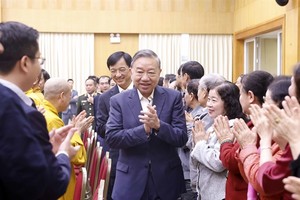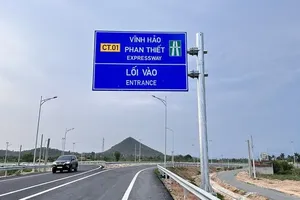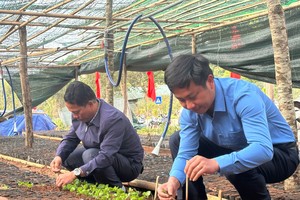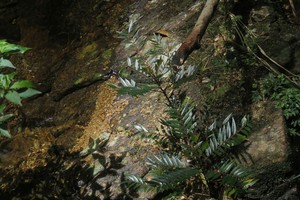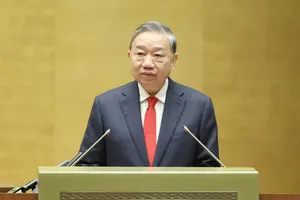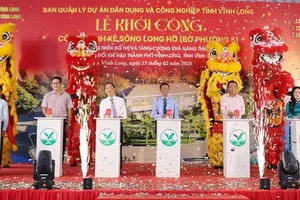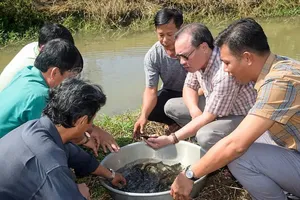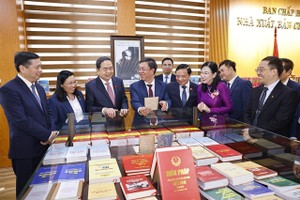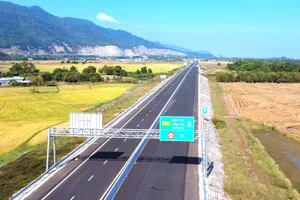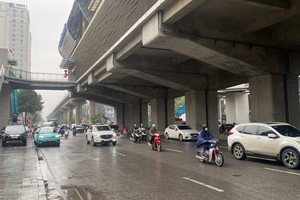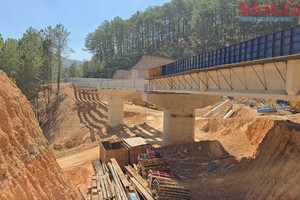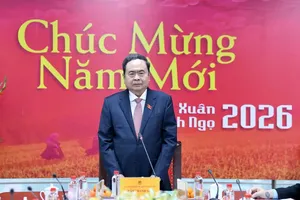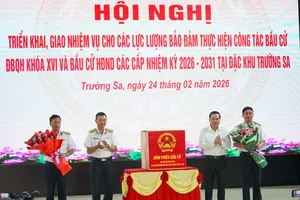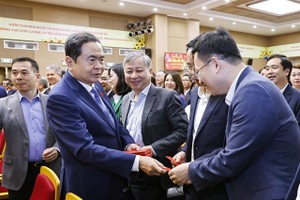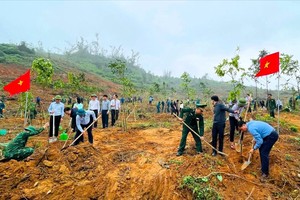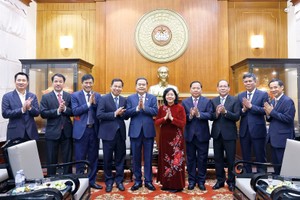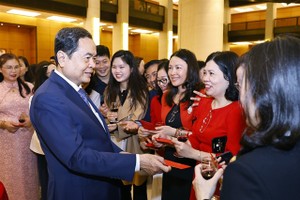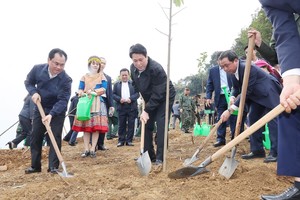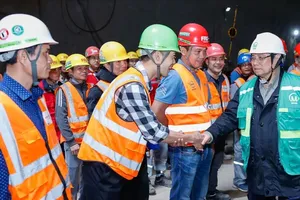Over the past decade-plus of contributing to the United Nations Peacekeeping Force, Vietnam has consistently excelled in its duties, earning the UN's high regard. Beyond task completion, Vietnamese blue beret soldiers have become ambassadors, projecting an image of responsibility, friendliness, humanity, and a deep commitment to peace to the international community.
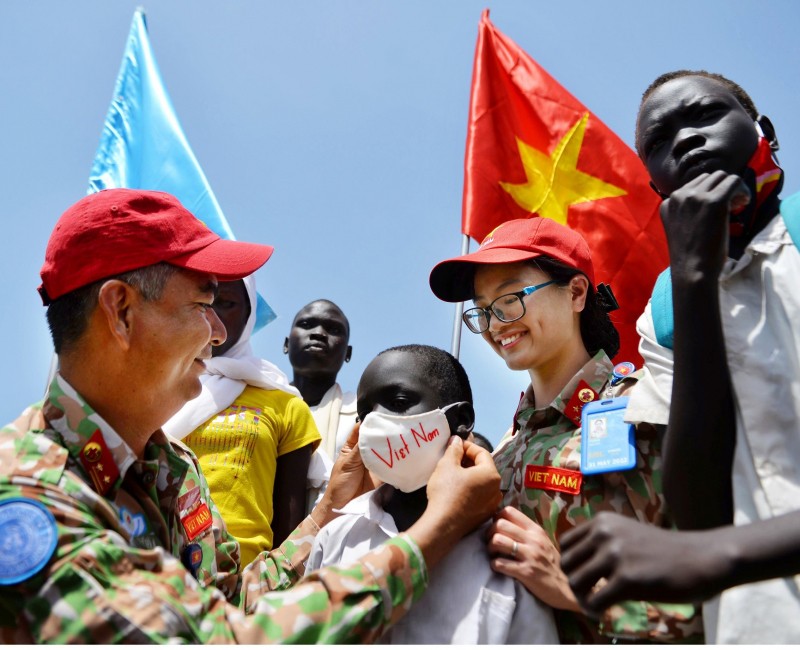
Beginning in February 2025, approximately 20 training courses for Field Hospital 2.7 commenced as the nation anticipates the 50th anniversary of the Liberation of the South and National Reunification. Field Hospital 2.7 is scheduled to depart on its mission to South Sudan in late September 2025.
Assuming the role of Director, Major Tran Duc Tai acknowledged that the accomplishments of previous contingents serve as both a source of pressure and inspiration for him and his team to perform at their best.
The current formation of Field Hospital 2.7 includes a blend of young, dynamic, and creative personnel, as well as experienced soldiers who have served in earlier rotations.
All personnel are committed to fulfilling their mission with strong discipline and a focus on force preservation. Notably, Field Hospital 2.7 will prioritize effective mass mobilization efforts, healthcare delivery, and educational support for the region's future generations.
Ahead of the training period, Major Tran Duc Tai disclosed that he accepted the role of Director while his children were still very young—one just four years old, the other only six months. He admitted feeling a deep sense of guilt witnessing his wife shoulder the responsibilities of caring for the family alone.
Understanding his concerns, his wife encouraged him to confidently accept the noble task assigned by his superiors.
Major Tran Duc Tai and his team brought with them the memoir Hanh trinh vi hoa binh (Journey for Peace ) by Senior Lieutenant General Nguyen Chi Vinh, recognizing its value in conveying the silent sacrifices and borderless solidarity of Vietnamese blue beret soldiers. Each story in the memoir offers invaluable insight, helping the next generation understand the depth of commitment required in peacekeeping missions.
Notably, the memoir highlights the substantial contributions of officers and soldiers from Military Hospital 175 in organizing training programs and deploying Field Hospitals 2.1, 2.3, and 2.5. Beyond its narrative, the book serves as a key resource for study, communication, and education—aimed at deepening awareness and fostering a sense of responsibility among officers, soldiers, and younger generations regarding the significance of participating in international peacekeeping efforts.
Having just completed his mission with Field Hospital 2.5 and returned from South Sudan in September 2024, professional soldier Captain Le Trung Kien again joined the training class of Field Hospital 2.7 with excited feelings.
Captain Trung Kien’s journey to join the ranks of the Vietnamese blue berets was marked by persistence and resilience. In 2014, he volunteered for the Level 2 Field Hospital but was not selected. Undeterred, he reapplied for Field Hospital 2.3 in 2018. Despite undergoing extensive training, he was again placed on the reserve list—a moment that left him visibly emotional. It was only on his third attempt, upon receiving the official assignment to Field Hospital 2.5 and deploying to South Sudan from June 2023 to November 2024, that he finally saw his long-held dream realized.
Captain Le Trung Kien expressed that serving in peacekeeping missions is a profoundly sacred and honorable duty.
To this day, professional soldier Captain Truong Mai Hoa continues to hold vivid memories of her time serving at the Level 1 Field Hospital with Engineering Team No. 1 under the the United Nations interim security force for Abyei (UNISFA) mission from June 2022 to August 2023.
She said that although she set off with a very high determination, the harsh climate, lack of facilities and unforeseen incidents on the journey made the female soldier want to cry when she met her teammates waiting in a strange land.
With youthful energy and unwavering determination, she immediately began fulfilling her mission, undeterred by the challenges ahead. In Abyei, the days were oppressively hot, while the nights brought a biting chill. During the dry season, vegetation withered and the landscape was blanketed in dust; yet with just a single rainfall, the dirt roads transformed into deep, crater-like mud pits. The region experiences only three months of rain each year, leaving a prolonged and unforgiving dry season that intensifies water scarcity and significantly impacts daily life.
She remembered that at times when water for drinking and daily use ran out, leaving everyone reliant on support from the mission. One of the most daunting challenges was the constant threat of disease. In Abyei’s remote areas, flies and mosquitoes densely populated the surroundings, particularly around the camps. Over the course of more than a year, nearly 30 members of Engineering Team No. 1 contracted malaria—many cases developing into malignant forms due to limited medical supplies. Despite these hardships, Abyei remains a place filled with proud memories of Vietnamese soldiers and the warmth of the local people.
Every weekend, Engineering Team No. 1 regularly organizes civic engagement activities—offering support to local residents and providing educational assistance to children. One female officer, in particular, dedicates her weekends to collecting surplus materials and crafting teaching aids for students. She was struck by the reality that many children in the area had only encountered concepts like computers and the internet through basic illustrations drawn on the classroom board.
